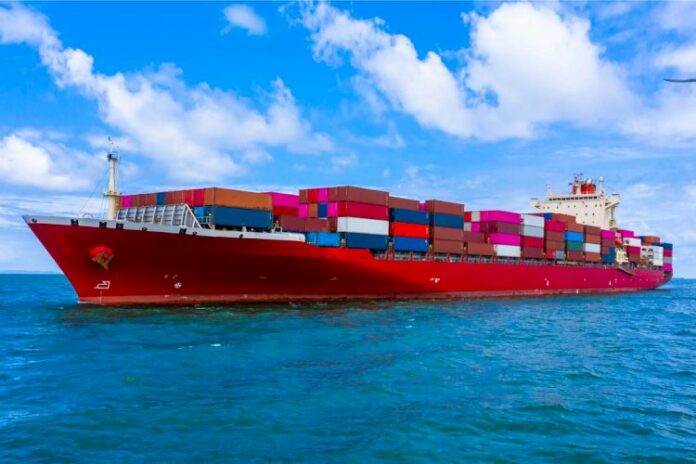In a bid to help transform UK goods distribution, a collaborative investment of £530M is hoped to reduce reliance on road haulage and create a new coastal network. The partnership between industry, government and academia would realise greater use of safe, zero-carbon short sea shipping and move more than 25% of UK’s land haulage tonne km via a zero-carbon automated fleet by 2030.
The UK relies predominantly on road freight to distribute goods from its major ports to centres of manufacturing and use. The majority of freight is carried by Heavy Goods Vehicles (HGVs) leading to low efficiencies due to the large number of freight transactions, resultant high levels of CO2 emissions, significant contribution to harmful levels of air pollution close to populated areas, highly congested Strategic Road Network and increased risk of road accidents.
Such improvements to trade distribution would help to address urgent climate and environmental change imperatives and support reduction in congestion and road safety. Further, it could provide alternate transporting means that are less reliant on human intervention which is critical as we face the global COVID-19 pandemic.
The outcomes from the transformation will potentially generate more than £1.8 billion additional revenue to the UK and create 39,000 extra jobs; reduce land-based CO2 emissions by 30-40%; It is also hoped they will:
- reduce road congestion by 25%;
- distribute wealth to regional UK coastal communities;
- contribute to the Zero Carbon Maritime Plan;
- improve British shipbuilding productivity and competitiveness;
- enhance port infrastructure whilst reducing their carbon footprint;
- increase export opportunities; and
- improve safety and reduce loss of life.
Creating a radical new zero-carbon approach to transport goods as part of an integrated autonomous system has not been attempted anywhere in the world. This would allow the UK maritime shipbuilding and service sector to sell to the world’s ever-expanding need for high quality advanced maritime transportation.
To help achieve these ambitions, Maritime Research and Innovation UK (MarRI-UK) have submitted a Comprehensive Spending Review bid, jointly developed by its members. MarRI-UK is an industry-led initiative, hosted at the University of Strathclyde, currently have six industrial members (BAE Systems, Babcock, BMT, Lloyd’s Register, Shell, QinetiQ), and four university members (Newcastle, Southampton, Strathclyde, UCL), partnering with the Society of Maritime Industry and Maritime UK, to address the lack of co-ordination and resource in the maritime research and development. The bid is is also supported by leaders of Society of Maritime Industries (SMI), Associated British Ports, Maritime UK, British Ports Association, UK Major Ports Group, UK Chamber of Shipping, Maritime Skill Alliance, and the Maritime and Coastguard Agency (MCA).
John Howie MBE, Chief Executive – Marine, Babcock International Group and Chair of MarRI-UK, said:
“The zero-carbon coastal highway initiative has the potential to transform the transportation of goods in the UK, delivering significant reductions in environmental emissions through a solution that will showcase the very best of UK maritime innovation. By working together, across industry and academia, we can offer collaborative, forward thinking solutions that will benefit both the UK and wider maritime industry. Targeting a reduction in land-based transportation requirements underpins global environmental emissions ambitions and supports local communities however, is not without its challenges. We must continue to join forces wherever we can to provide a futureproof trade option.”
Sarah Kenny OBE, Chief Executive Officer of BMT and Vice-Chair of Maritime UK, said:
“As Chief Executive Officer of BMT and Vice-Chair of Maritime UK, we believe that this Zero Carbon Coastal Highway Flagship Programme will both revitalise and enable the UK industry to recapture its position as leading innovators in the global maritime sector.
Working with our partners at a national level, we can ensure that there is a strong likelihood that maritime related priorities will be looked upon favourably. After all, as one of the most significant industries in the United Kingdom and the facilitator of 95% of all trade via seaborne means, we know we have a significant role to play in post COVID-19 economic recovery. Making the UK a scientific superpower, including leading in the development of technologies that will support the government’s ambition to reach net zero carbon emissions by 2050 is paramount to the UK’s future.
The Zero Carbon Coastal Highway Flagship Programme of technology development will, we believe, deliver a transformational change to the UK Transport Sector, reducing significantly emissions from the road network, enhancing our Ports and Harbours, supporting the levelling-up agenda through regional development and new innovative business models, accelerating change internationally. Based on this, the UK maritime sector is well-positioned on all the priorities set out by the Government and the Chancellor for the latest Comprehensive Spending Review.”



